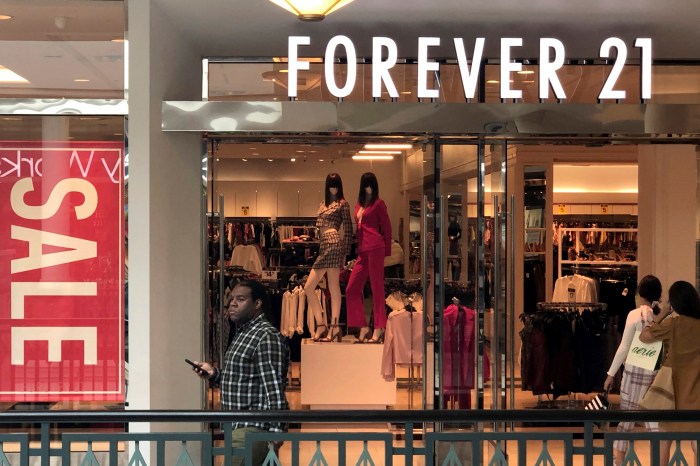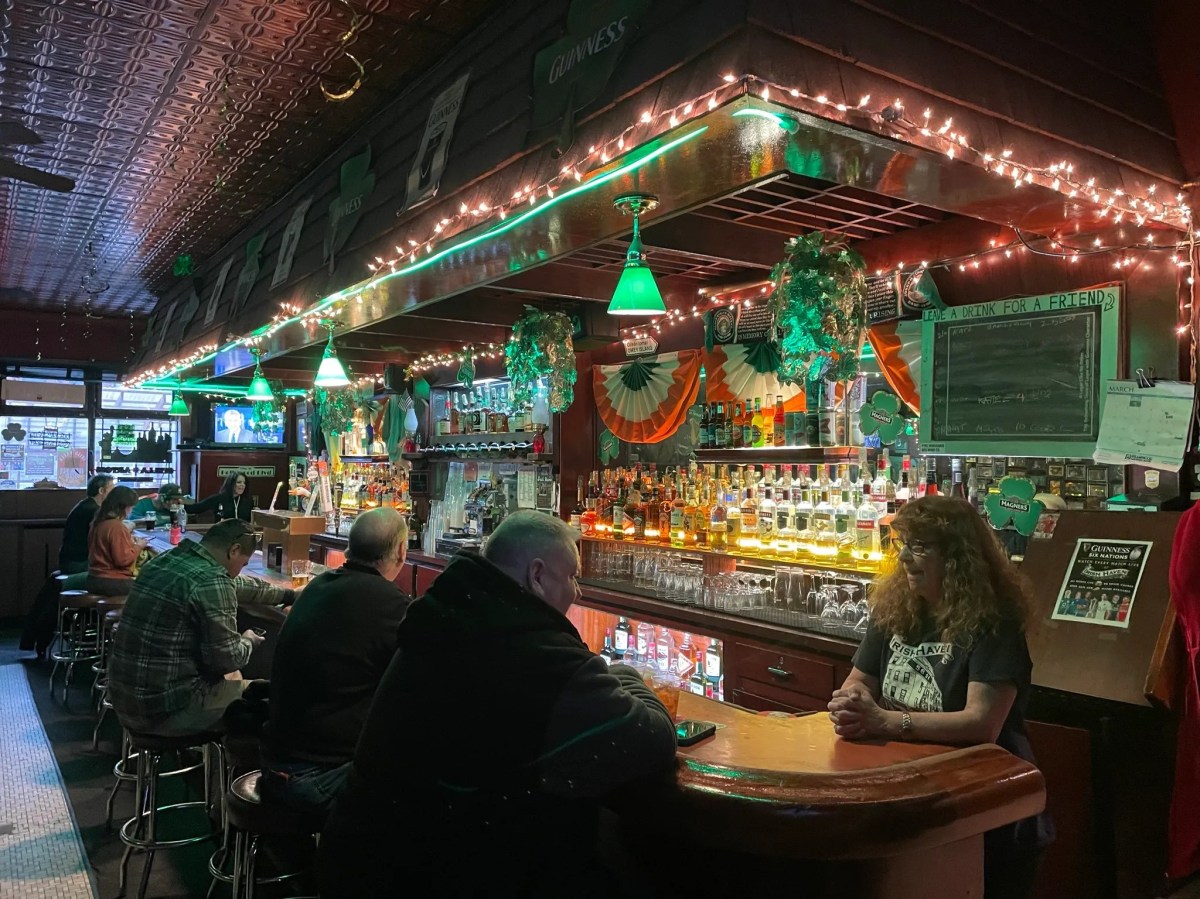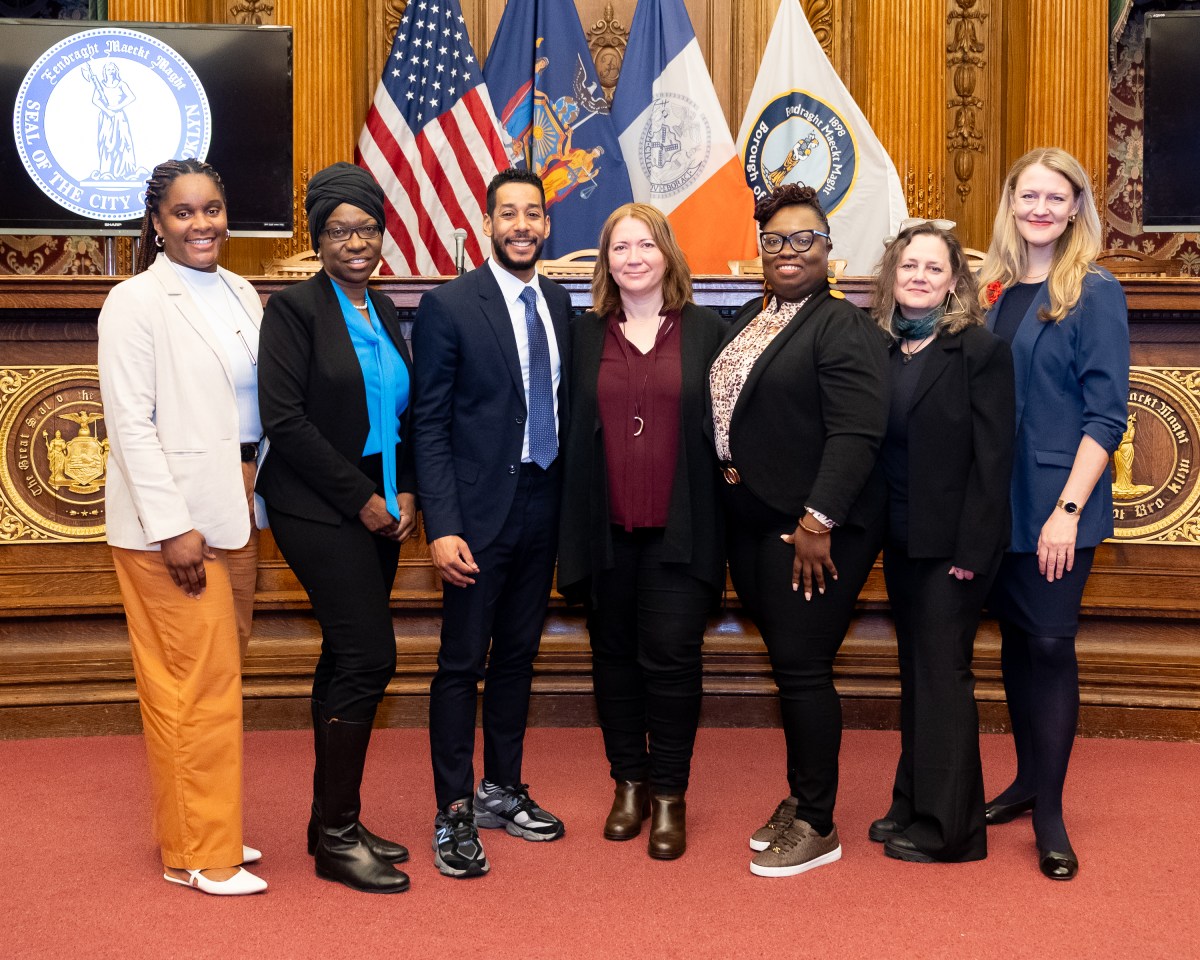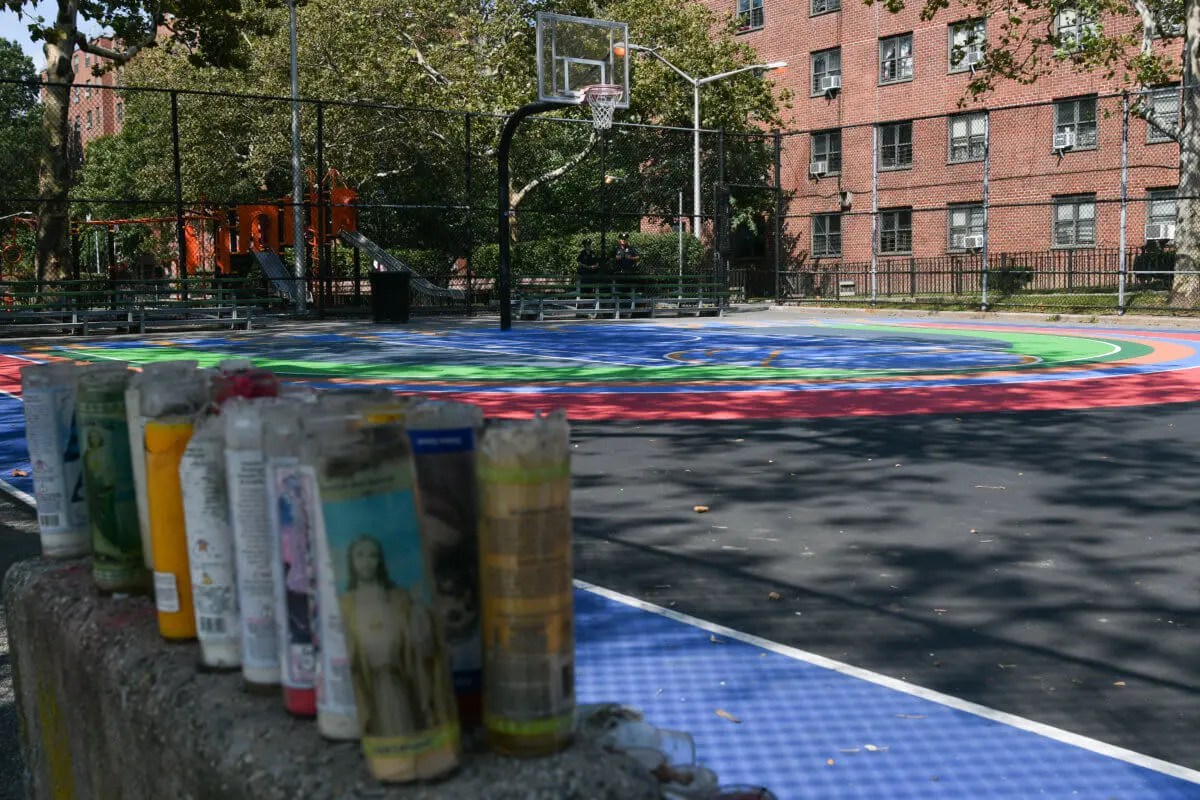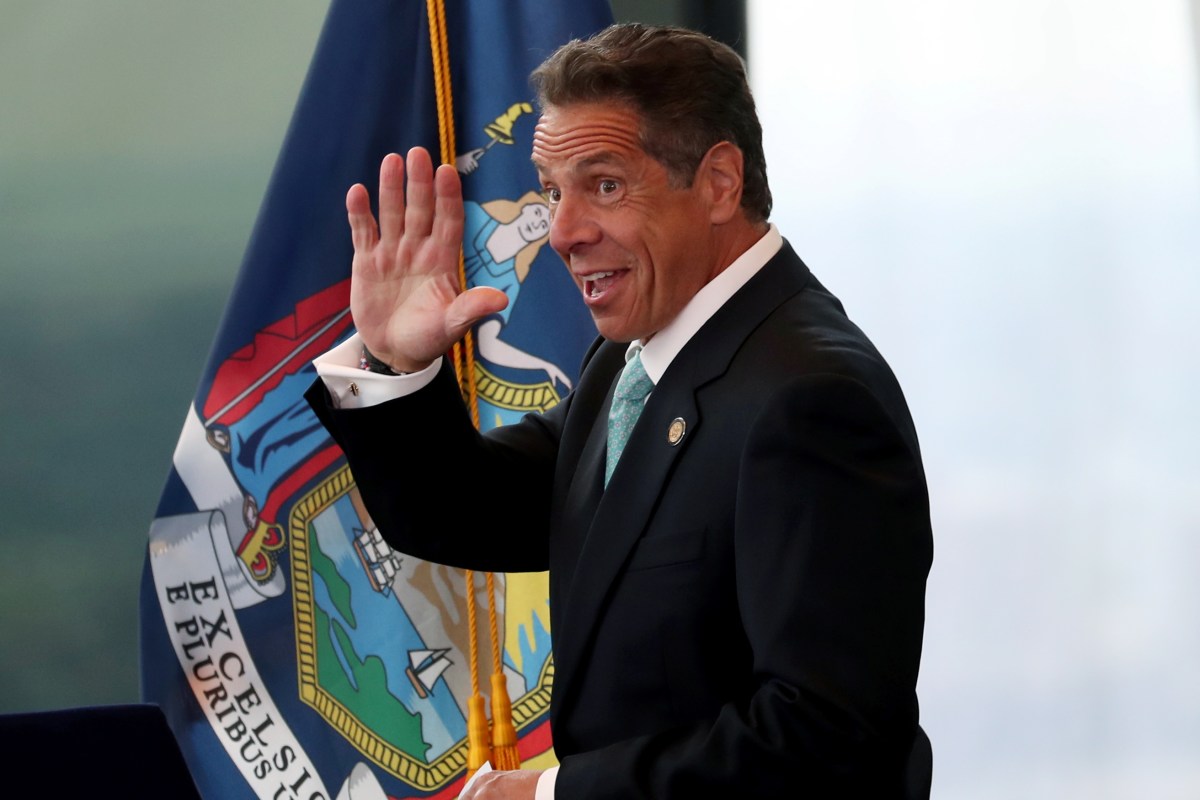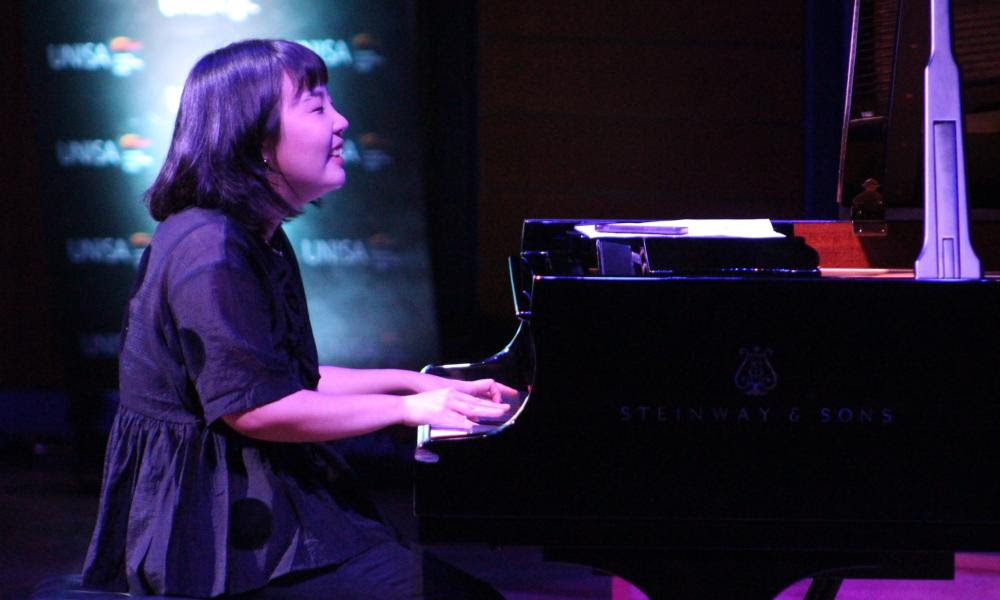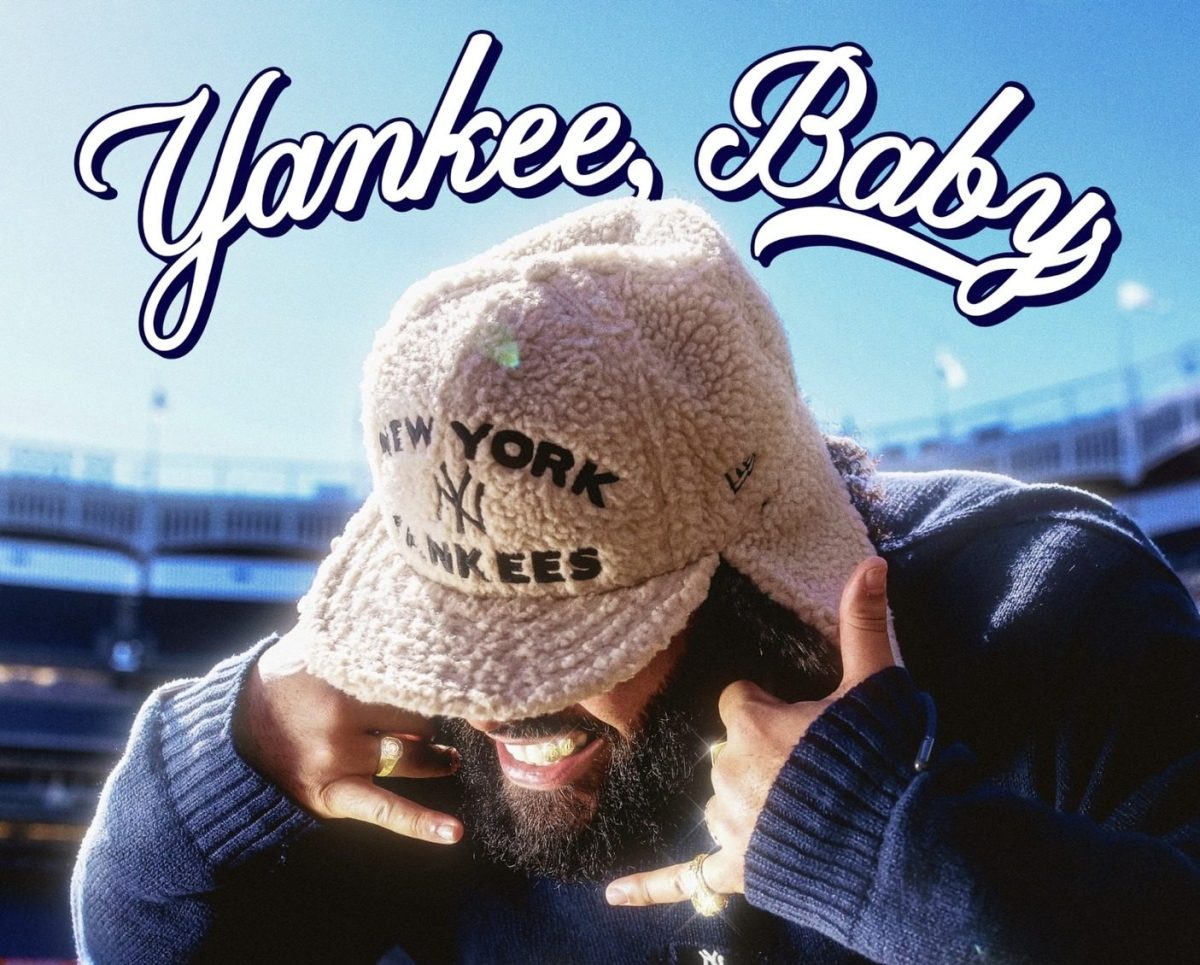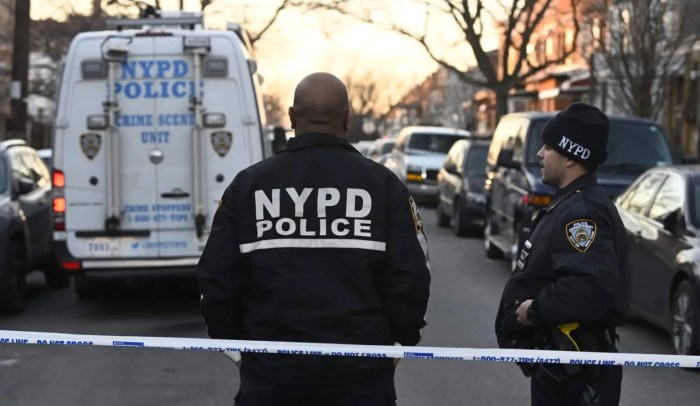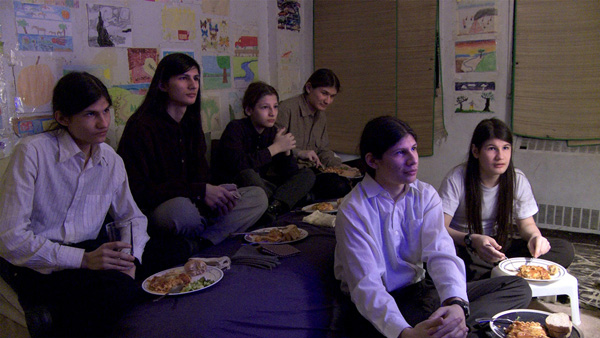
The Angulo brothers eat dinner while watching a movie. L–R, back: Narayna, Govinda, Jagadisa and Bhagavan. Front, from L: Mukunda and Krsna.
BY RANIA RICHARDSON | The Angulos, a large, good-looking family living in extreme conditions, would certainly make for entertaining reality TV. One is left with so many questions after viewing “The Wolfpack,” it’s hard to believe that no broadcaster is considering this. How can we see more? How can we know more about this odd group? The story is as intriguing as it is unbelievable, as a paranoid Peruvian immigrant, his pliant Midwestern wife and their six longhaired sons and one daughter live in self-imposed confinement, in an apartment just steps away from the bustling day-to-day activities of millions of New Yorkers.
Like a real-life “Being There,” in which Peter Sellers plays a homebound man who is schooled in human behavior by watching television all day, the Angulo boys grow up in isolation but have access to a myriad of movies on DVD — complete with the violence and horror that one imagines their father is trying to shield them from in the outside world — such as “The Godfather,” “Reservoir Dogs” and “Blue Velvet.” When they do eventually journey away from home, Coney Island looks like “Lawrence of Arabia” and a patch of trees is the Forest of Fangorn from “The Lord of the Rings.”
The boys have a surfeit of creativity and they build props and reenact scenes from their favorite films with a striking resourcefulness. The gentle, inseparable siblings are close to their mother, who shuns materialism. Ingenuity has trumped consumerism in their lives. Is it possible that being indoctrinated by the fantasy world of Hollywood was better than being “contaminated” by the outside world, as believed by Mr. Angulo?
BY PUMA PERL | It is both ironic and fitting that a family cloistered from the outside world by a delusional, alcoholic patriarch, finds itself on the large screen in Crystal Moselle’s first full-length feature, “The Wolfpack.” The Angulo family consists of a Peruvian born father, his American wife, and their six sons and mentally disabled daughter. The father was the only family member with a door key and the children were allowed out only for rare, supervised excursions. As one of the sons explains early in the film, “We went out maybe five times a year…some years we didn’t go out at all.”
One of the things they did, in addition to completing the home study assignments provided by their mother, was watch and act out movies, complete with home made costumes and memorization of scripts. They have a natural preference for ensemble films, and Quentin Tarantino seems to be a favorite. One of the boys, Mukunda, describes movies as “his life” and the closing scene shows him at work directing a short film that he created.
As the boys grew older, they began to defy their father by going out into their Lower East Side neighborhood, and eventually exploring further, including a trip to Coney Island, where Mukunda, who was the first to leave the house unaccompanied, exclaims “I’m not going on that beach! There are people on it!” Moselle just happened to meet the boys during their first week exploring the neighborhood, and, over several years, completed the film.
One of the dynamics we observe is the ways in which the father, who in most scenes wears only jockey shorts, grows weaker as the boys grow stronger. One of his intentions had been to create his own cult-like tribe, and we see home movies of ritualized celebrations. He insisted that the boys’ hair be kept long and, as a failed musician, provided instruments for them; he described his avoidance of work as “rebellion” and revealed his dashed hopes of forming a famous rock band. It is significant that the boys, one by one, began to cut their hair as they began to establish their independence.
All of the family members appear not only comfortable before the camera, but seem to enjoy it. The only physical neglect apparent in the children is an obvious need for dental work. They are high spirited at times, intelligent and humorous. But this is not a story about resilience. That would be too simple. Rarely does anyone speak longer than a few minutes without holding back tears, including the father, who initially addresses the camera only with attempted penetrating stares, which failed to project the power he intended. “He thinks he’s special,” says one of the boys, “like he’s smarter than anyone else.” Fiercely protective of their mother, whose physical abuse was obvious to them, they express great sadness about the life inflicted upon them, and suggest sexual abuse. Even the father admits that “he wished that what happened didn’t happen” without going into detail.
I left the film chilled with the knowledge that I pass their Lower East Side housing project every day. I was able to pinpoint it in scenes where they gazed out the windows, and was reminded of the many times we read of a “house of horrors” with nobody around to notice anything amiss. One can only hope that their journey towards claiming their lives continues.
THE WOLFPACK
At The Tribeca Film Festival
Documentary
Directed by Crystal Moselle
Runtime: 82 minutes
Mon. 4/20, 4:30pm at Regal Cinemas Battery Park (102 North End Ave. at Vesey St.)
Wed. 4/22, 6:30pm at Bow Tie Cinemas Chelsea (260 W. 23rd St. btw. 7th & 8th Aves.)
$18 ($3.50 phone & web reservation fee)
Visit tribecafilm.com/festival or call 646-502-5296



